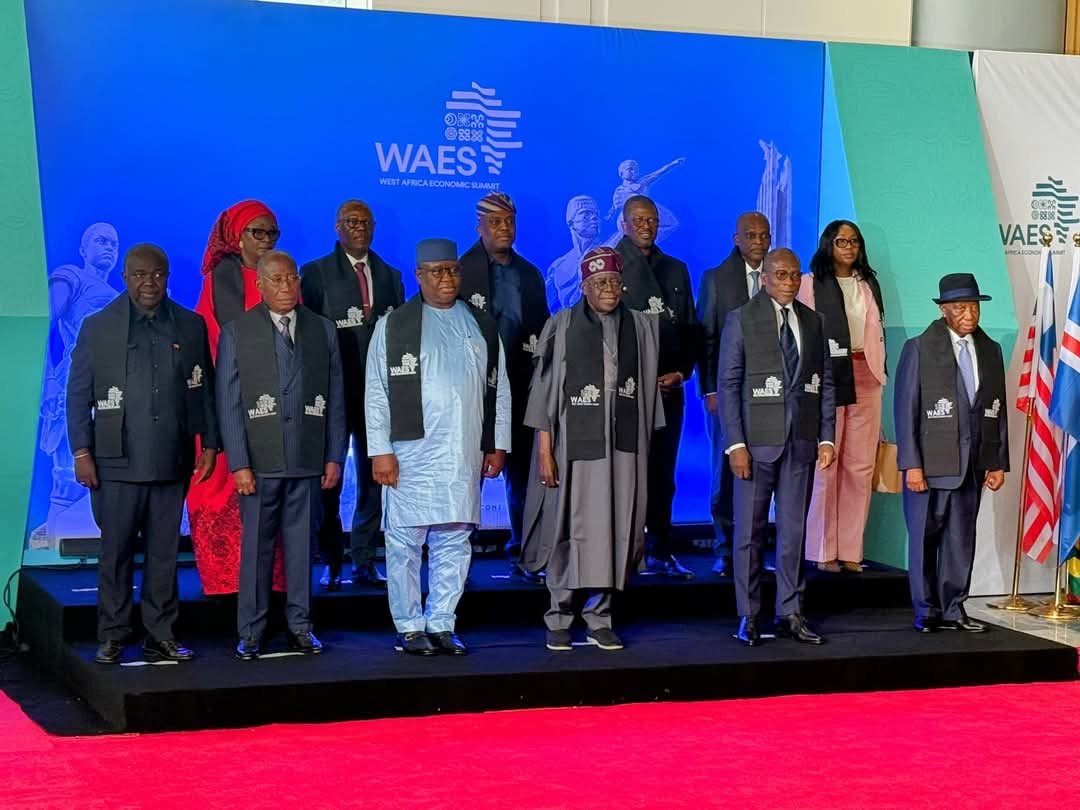Ghana has made a strong case for the immediate establishment of a time-bound action plan for the implementation of the long awaited ECO single Currency within the West Africa Sub-Region.
Ghana’s Deputy Minister of Finance, Hon. Thomas Ampem Nyarko, made the call when he addressed the 2025 West African Economic Summit in Abuja, Nigeria.
He urged ECOWAS leaders to move beyond rhetoric and set clear, actionable milestones towards realising the region’s economic integration ambitions.
“Undeniably, we all support the dream of a single currency — the ECO. But while we continue dreaming, our traders struggle,” Hon. Thomas Ampem Nyarko stated.
“In 2024 alone, currency conversion losses wiped out an estimated $2.3 billion in regional business value.”
He proposed the establishment of a regional currency convertibility mechanism, backed by ECOWAS central banks, to allow seamless transactions between currencies such as the Naira, Cedis and Franc through digital platforms.
Ghana’s Deputy Minister of Finance decried that after more than two decades of discussions, the ECO currency remains a mere aspiration while West African businesses and citizens bear the cost of a fragmented economic environment.
Our businesses suffer, our traders lose billions, and our youth lose faith. The absence of a common West African currency continues to fragment our economies, hinder investment, and raise the cost of doing business across our borders.It is time to move from vision to action” Said Hon. Thomas Ampem Nyarko.
Ghana therefore urged ECOWAS Heads of State to take direct political Control of ECO project by approving a clear -time bound action plan with defined milestone and institutional responsibilities.
“a single currency must not be treated as an eternal aspiration, but as an achievable mission” he said.
Speaking on other challenges facing regional trade, Hon. Thomas Ampem Nyarko revealed that Africa loses $170 billion annually in trade potential due to infrastructure gaps.
He said,within ECOWAS sub-region, over 62 percent of cross-border roads remain unpaved, while port congestion continues to add between $300 to $500 per container.
To address these deficits, Ghana proposed the creation of a West Africa Infrastructure Guarantee Facility — a pooled risk instrument to unlock private capital for key infrastructure corridors such as Lagos, Cotonou, and Abidjan.
“It is estimated that Africa loses 170 billion dollars annually in trade potential due to infrastructure gaps. Within ECOWAS, over 62 percent of cross-border roads remain unpaved, and port conjecture adds between 300 to 500 dollars per container.Without roads that connect, energy that powers, and logistics that flow, investment and trade cannot blossom” .
Ghana itself, he noted, is investing over $3.2 billion in digital public infrastructure, green logistics, and special economic zones, expanding port facilities and deploying AI to improve revenue mobilisation while reducing tax filing time for SMEs by 40 percent.
Hon. Thomas Ampem Nyarko said, recognising West Africa’s youthful population, Ghana proposed the establishment of a West Africa Innovation Passport (Startup Pass) to enable young entrepreneurs to scale their businesses across the region.
He also announced Ghana’s readiness to host a West African Innovation Sandbox to nurture startup ideas, fund prototypes, and open regional markets. Additionally, Ghana offered to co-host a Youth in Trade Forum in 2026 to further support the region’s young business leaders.
“Our youth are not looking for pity or platitudes. They are seeking a platform,” he emphasised.
Source: Ghana/Starrfm.com.gh/Obed Kojo Ansah




